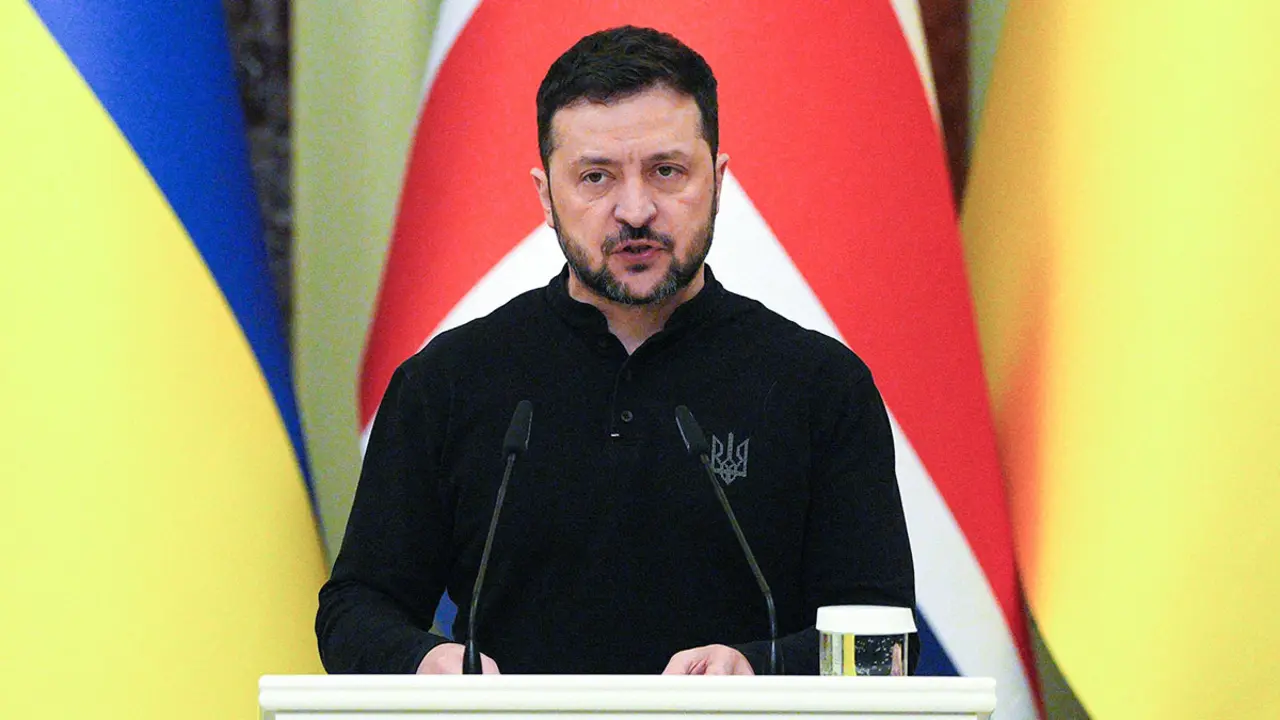Drones revolutionise the second anniversary of the Ukrainian war
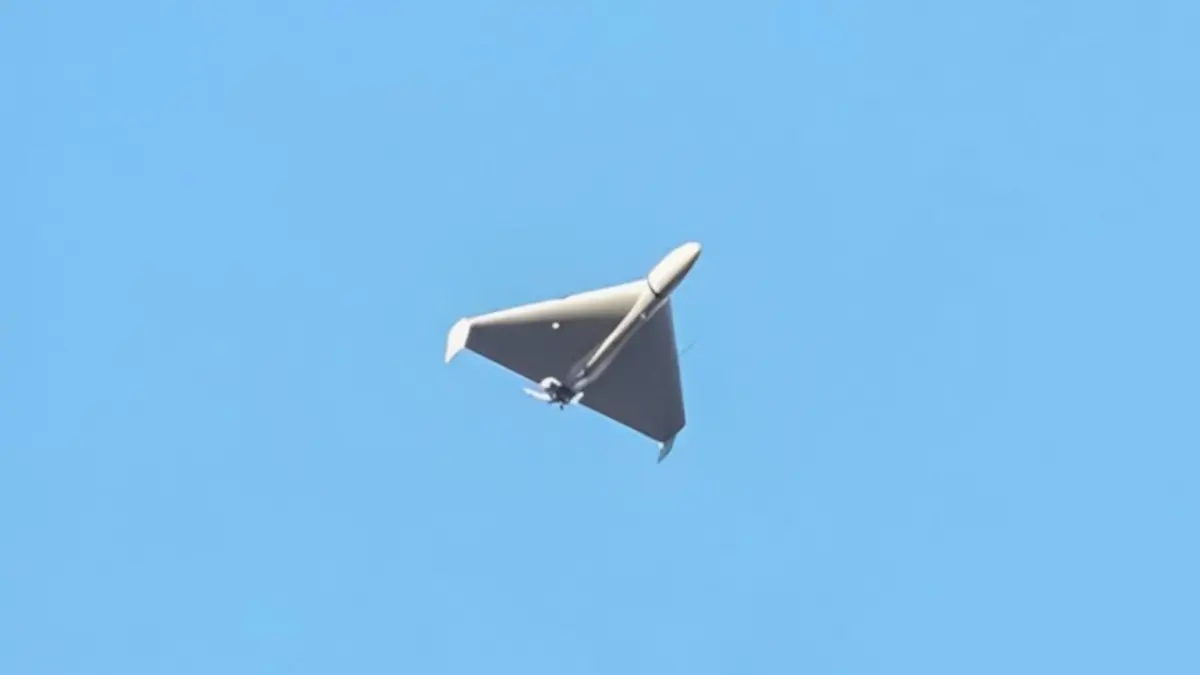
After two years of war, in most of the regions that were occupied, Ukrainians have not been able to return to their homes, and those who have returned are dependent on humanitarian aid. An issue that was discussed by journalist and correspondent María Senovilla on Onda Madrid's "De cara al mundo" programme.
María, two years after the Russian invasion, how many months out of these 24 have you been on the ground?
I've been on the ground for days, not months. This weekend I reached 500 accumulated days on the ground counting the war from Ukraine.
You have just returned from the front, you have been with a drone unit, tell us, are drones one of the main protagonists of this war?
Drones have been the great novelty of this war, not the drones themselves, but their use in warfare and, above all, all the commanders, all the soldiers who work with drones; the most important thing is that with a drone you can save a soldier's life. Where previously a soldier was needed for scouting or even for infantry and sabotage tasks, now that task can be taken care of with a drone.
It doesn't cost a life, and a life that has the added bonus of requiring military training and experience. So everyone tells you that drones are saving the lives of their comrades. Right now it is Russia that would have the advantage with the use, the handling and, above all, the arsenal of drones. Right now it is Russia that has control over airspace and electronic countermeasures.

They told me that for some months they have been finding it very difficult to work because, above all, the simplest drones, the Mavic drones, cannot be deactivated. We are talking about a kind of radar that allows you to locate these drones and they were losing a large number of unmanned vehicles.
In the position I've been in, they work with a Valkyria drone, which is much more expensive, but which has the possibility of being deactivated during the flight. This way they don't recover it, they reactivate it later and the drone returns home. The Ukrainian army seems to be growing dwarfs. If they were already having a hard time because of the lack of ammunition that they continue to harass in an agonising way, now the issue of Russian electronic countermeasures, which have multiplied, is making it very difficult for them to work with drones.
Maria, what happened in Adviidka? The Ukrainian withdrawal has been more hasty than expected, while Russia has reported summary executions of soldiers who could not leave in time.
They seem to have been spotted by drones, precisely, and indeed the withdrawal was somewhat disorderly. My opinion is that they intended to hold out until the anniversary and withdraw just after, so that Russia could not score that goal, that symbolic victory, and that when they ran out of artillery, when Russia intensified its attacks, and I was told by members of the assault brigade, who were inside the city, that Russia had intensified its attacks in the last few days, and was attacking them with everything, with guided bombs, with a cluster, with RPGs, with everything you can imagine. To respond to that very intense firepower by the Ukrainians, they would have had to have had a small arsenal, which they didn't have inside Adviidka at the time.
My theory is that they were planning to hold out for another week so that even Russia could take that enclave before the anniversary. They have withdrawn more hastily than planned. The fact is that it is said that up to a thousand Ukrainian soldiers could have stayed behind and through those observation drones, they have been able to see, they have been able to film how the Russian troops have not respected the Geneva agreements for prisoners of war and have executed them.
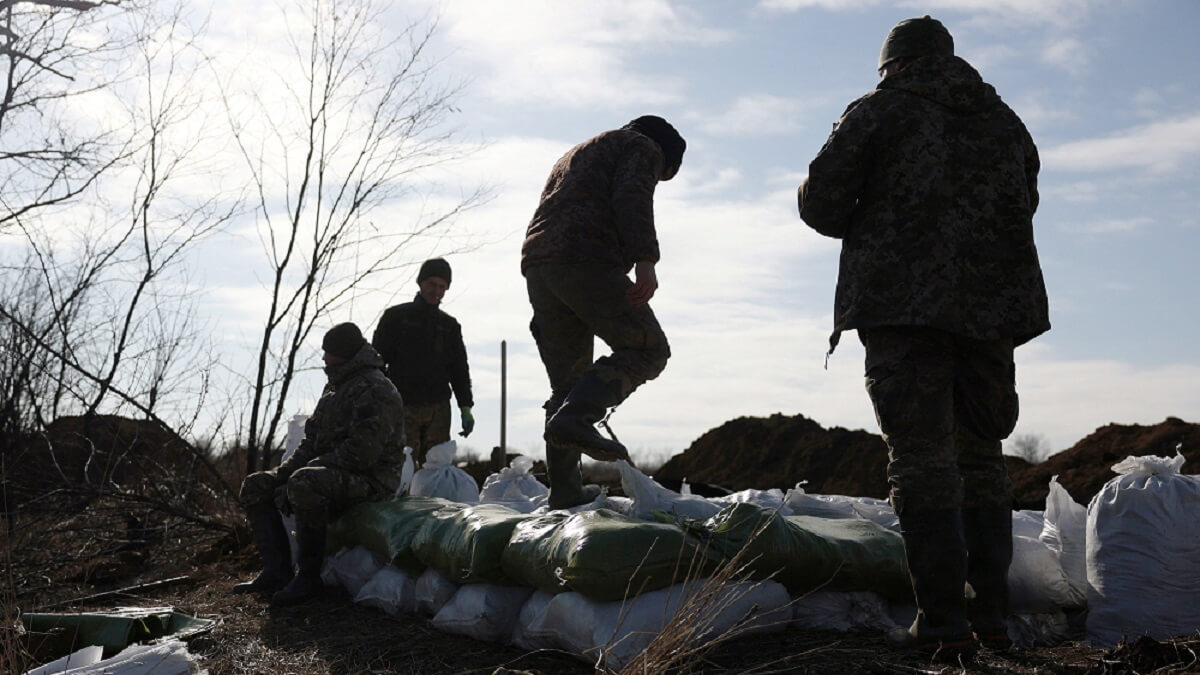
This is not the first time they have done this, and it is not surprising. Moreover, the Russian bombardment continues. We are only a few hours away from the anniversary. The other day I saw where the bombs fell and it was too close to where you sleep and they have left you without drinking water in Kramatorsk.
Yes, it's been a pretty tough week. This morning, as I was moving from Kramatorsk, the anti-aircraft sirens were going off again. So it doesn't look like the pre-anniversary bombing wave is over. They have attacked critical targets, so to speak, critical infrastructure, such as a water treatment plant. Which, by the way, is a totally civilian target, because there were no soldiers there. They launched S-300 missiles. Incidentally, they damaged a lot of residential buildings across the street, blowing out all the windows. And they effectively left us without drinking water. The mayor of Kramatorsk issued a statement yesterday saying that "technical water" had been pumped into the network, which is not suitable for drinking, of course, nor for cooking, nor for brushing your teeth, and they said it was not even suitable for taking a shower. Imagine the situation we have right now in this city.
It was not the only bombing. Blocks of houses, private sectors, which are low houses where there have been dead and wounded. Throughout this day also, the anti-aircraft sirens have been very active.
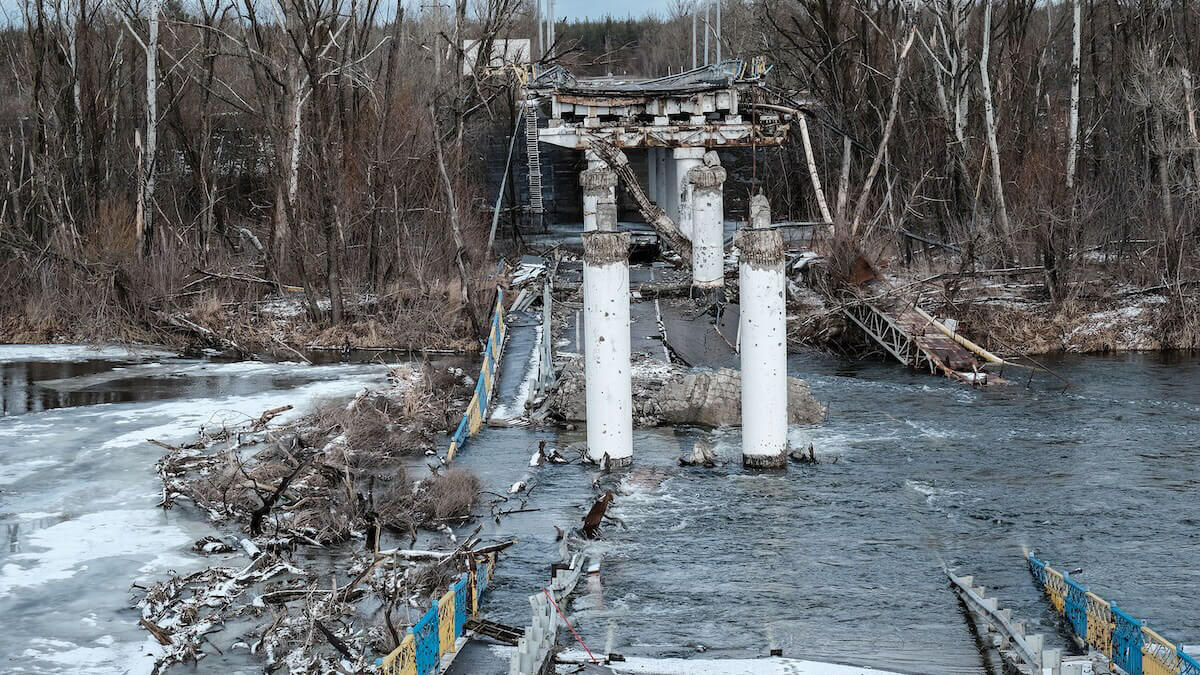
President Volodimir Zelensky gave an interview to the American Fox network on the front line, practically in the city of Kupiansk. What did Zelensky say? Does he seem optimistic despite the problems he is having?
The first thing he said was that the war is not at a dead end, something that the former head of the Ukrainian Armed Forces, Valery Zaludny, said a few months ago when he gave another interview to an Anglo-Saxon media outlet, and claimed that the war against Russia was currently at a dead end.
Zelensky was quick to respond. He said that this was not the case. He said that Ukraine could still win the war and, moreover, regain all the territories that Russia is currently occupying. Of course, he warned, a big push is needed from Western partners, because they are out of ammunition, because Russia now controls the skies. This is a clear nod from Zelensky to those F-16s, some of which are rumoured to be already in Ukraine, but whose pilots are still in training.
The staging, moreover, is noteworthy. Just two or three kilometres from the Russian troops in the city of Kupiansk, they set up a set, an almost apocalyptic scenario, with two chairs, one for the journalist and one for the president. And there they recorded the interview while artillery duels could be heard in the background. A declaration of intent, a staging, above all, focused on those Western partners, both the member states of the European Union and, of course, the United States, which has still blocked a military and economic aid package worth more than 60 billion, which is sorely needed here on the front lines, because this package includes ammunition, more heavy weapons, and also money to pay the salaries of the soldiers who are currently on the front lines. There are some brigades in which there are delays with salaries, with the salaries paid to the soldiers.
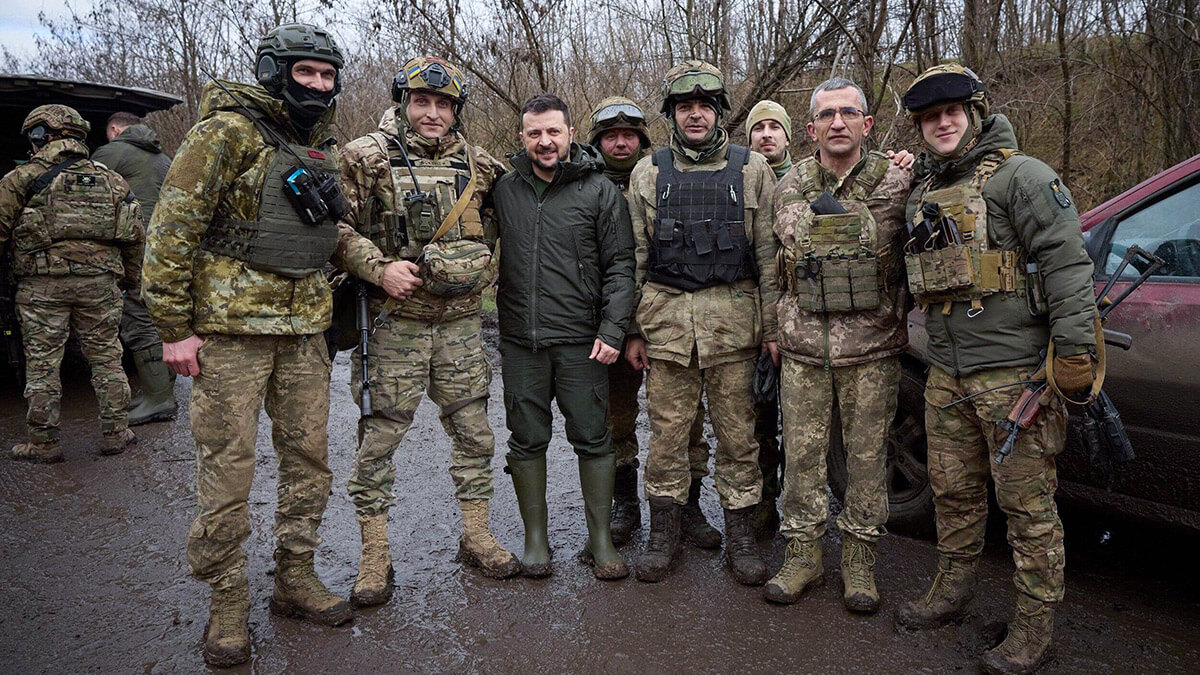
Finally, Maria, you were telling me that on your visit to the commander in charge of this drone unit, one of the people in charge of the unit had been trained in Spain, right?
That's right, the commander of this drone position of the 22nd Brigade was one of those Ukrainian soldiers who travelled to Spain last year to receive training and he was in Segovia. He has been showing me photos of the places Pedro mentioned, where he may have been taught how to operate this type of vehicle, because what I am seeing these days, well, these days and these past few months, in the trenches of Ukraine, is that Ukrainian soldiers are becoming more and more versatile, they have gone through more and more disciplines, in addition to these, for example, who were handling drones, one of them came from artillery before, the one I'm telling you who was in Segovia, they probably taught him how to handle these armoured vehicles. They are increasingly acquiring more and more versatile training.









